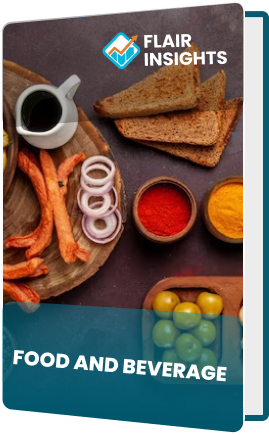
Global Food Automation Market Size By Type (Motor Controls, Discrete controllers & visualization), By Application (Bakery Products, Drinks), By Region, And Segment Forecasts, 2023 to 2032
Report Id: 10967 | Published Date: Feb 2023 | No. of Pages: | Base Year for Estimate: Feb 2023 | Format:
The Global Food Automation Market is projected to experience significant growth, driven by increasing demand for efficient and high-quality food production systems. In 2023, the market was valued at USD 15.8 billion and is expected to surpass USD 26.9 billion by 2031, registering a CAGR of 6.7% during the forecast period. Automation technologies enhance productivity, reduce operational costs, and ensure food safety, making them essential in modern food processing and packaging industries.
Drivers:
Rising Demand for Processed Food: Rapid
urbanization, lifestyle changes, and increasing disposable incomes are fueling
the demand for processed and packaged food, driving the adoption of automation.
Stringent Food Safety Regulations:
Regulatory frameworks are encouraging the implementation of automation systems
to ensure compliance and maintain high hygiene standards.
Technological Advancements: Innovations in
robotics, IoT, and AI are revolutionizing food production processes, enhancing
precision and efficiency.
Restraints:
High Initial Investment Costs: The upfront
costs of deploying advanced automation systems remain a challenge for small and
medium-sized enterprises (SMEs).
Lack of Skilled Workforce: The integration
and operation of automated systems require specialized skills, which are in
short supply in several regions.
Opportunity:
Emerging Markets: Developing regions,
particularly in Asia-Pacific and Latin America, present lucrative opportunities
due to increasing investments in food processing infrastructure.
Sustainability: The shift towards
sustainable food production processes is creating demand for energy-efficient
and waste-reducing automation technologies.
Market
by System Type Insights:
Robotic Systems: Dominated the market in
2023 due to their efficiency and precision in food handling and packaging.
Sensors & Detectors: Increasing
adoption of sensors for quality control and monitoring is expected to witness
substantial growth.
Market
by End-use Insights:
Food Processing Industry: Accounted for the
largest revenue share in 2023, driven by the need for efficiency and hygiene in
food preparation.
Packaging Industry: Expected to grow
significantly due to the demand for innovative, automated packaging solutions.
Market
by Regional Insights:
North America: Held the largest market
share in 2023, owing to advanced food processing technologies and high consumer
demand for processed food.
Asia-Pacific: Anticipated to exhibit the
highest growth rate during the forecast period, fueled by expanding food
manufacturing sectors in countries like China and India.
Competitive
Scenario:
Key players include ABB Ltd., Siemens AG,
Rockwell Automation Inc., Schneider Electric, Mitsubishi Electric Corporation,
and FANUC Corporation. These companies are investing in technological
innovations, strategic partnerships, and geographical expansions to maintain a
competitive edge. Recent developments include:
2023: FANUC Corporation launched advanced
robotic solutions tailored for food sorting and packaging.
2024: Siemens AG introduced AI-driven
automation systems for real-time monitoring and quality control in food
production.
Scope
of Work – Global Food Automation Market
|
Report
Metric |
Details |
|
Market Size (2023) |
USD 15.8 billion |
|
Market Size (2031) |
USD 26.9 billion |
|
CAGR (2023-2031) |
6.7% |
|
Key Segments |
System Type, End-use, Region |
|
Growth Drivers |
Rising demand for processed food,
stringent safety regulations, technological advancements |
|
Opportunities |
Emerging markets, sustainability |

Speak with an analyst to get exclusive insights tailored to your needs
.png)
